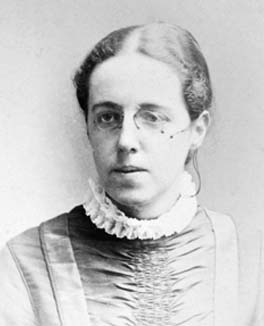

تاريخ الرياضيات

الاعداد و نظريتها

تاريخ التحليل

تار يخ الجبر

الهندسة و التبلوجي


الرياضيات في الحضارات المختلفة

العربية

اليونانية

البابلية

الصينية

المايا

المصرية

الهندية


الرياضيات المتقطعة

المنطق

اسس الرياضيات

فلسفة الرياضيات

مواضيع عامة في المنطق


الجبر

الجبر الخطي

الجبر المجرد

الجبر البولياني

مواضيع عامة في الجبر

الضبابية

نظرية المجموعات

نظرية الزمر

نظرية الحلقات والحقول

نظرية الاعداد

نظرية الفئات

حساب المتجهات

المتتاليات-المتسلسلات

المصفوفات و نظريتها

المثلثات


الهندسة

الهندسة المستوية

الهندسة غير المستوية

مواضيع عامة في الهندسة

التفاضل و التكامل


المعادلات التفاضلية و التكاملية

معادلات تفاضلية

معادلات تكاملية

مواضيع عامة في المعادلات


التحليل

التحليل العددي

التحليل العقدي

التحليل الدالي

مواضيع عامة في التحليل

التحليل الحقيقي

التبلوجيا

نظرية الالعاب

الاحتمالات و الاحصاء

نظرية التحكم

بحوث العمليات

نظرية الكم

الشفرات

الرياضيات التطبيقية

نظريات ومبرهنات


علماء الرياضيات

500AD

500-1499

1000to1499

1500to1599

1600to1649

1650to1699

1700to1749

1750to1779

1780to1799

1800to1819

1820to1829

1830to1839

1840to1849

1850to1859

1860to1864

1865to1869

1870to1874

1875to1879

1880to1884

1885to1889

1890to1894

1895to1899

1900to1904

1905to1909

1910to1914

1915to1919

1920to1924

1925to1929

1930to1939

1940to the present

علماء الرياضيات

الرياضيات في العلوم الاخرى

بحوث و اطاريح جامعية

هل تعلم

طرائق التدريس

الرياضيات العامة

نظرية البيان
Charlotte Angas Scott
المؤلف:
J Green and J LaDuke
المصدر:
Contributors to American Mathematics: An Overview and Selection, in G Kass-Simon and P Farnes
الجزء والصفحة:
...
22-2-2017
254
Died: 10 November 1931 in Cambridge, England

Charlotte Angas Scott's father, the Rev Caleb Scott, was a Congregational Church minister and Principal of the Lancashire Independent College, Whalley Range. He provided tutors for his daughter from the age of seven and it was from these tutors that Charlotte Scott was first introduced to mathematics.
She won a scholarship in 1876 to Hitchin College, soon to be renamed Girton College, of the University of Cambridge. Four years later she was placed eighth Wrangler but, as a woman, she was not allowed to graduate. Kenschaft, writing in [3], quotes a report of the graduation ceremony in 1880:-
The man read out the names and when he came to 'eighth', before he could say the name, all the undergraduates called out 'Scott of Girton', and cheered tremendously, shouting her name over and over again with tremendous cheers and raising of hats.
Scott continued research at Girton on algebraic geometry under Cayley's supervision, receiving her doctorate in 1885. This was the same year that Bryn Mawr College in Pennsylvania, United States, opened. The College was founded by Joseph Taylor, a Quaker, and it was set up with Quaker beliefs although it operated as a nondenominational college. It was the first higher education institution in the United States offering graduate training for women. On Cayley's recommendation, Scott was appointed there and became the first head of the Bryn Mawr mathematics department.
In 1894 Scott published an important textbook An Introductory Account of Certain Modern Ideas and Methods in Plane Analytical Geometry. In 1899 she became an editor of the American Journal of Mathematics and continued an impressive publication record. She also served on the Council of the American Mathematical Society and served as its vice-president in 1905.
Scott retired from teaching in 1924 and, after spending one further year at Bryn Mawr, during which time she completed the supervision of her final doctoral student, she returned to England.
Macaulay wrote in [5]:-
Miss Scott was a geometer who whenever possible brought to analytical geometry the full resources of pure geometrical reasoning.
Alfred North Whitehead, speaking in 1922 at a meeting of the American Mathematical Society held at Bryn Mawr in Scott's honour, said:-
A friendship of peoples is the outcome of personal relations. A life's work such as that of Professor Charlotte Angas Scott is worth more to the world than many anxious efforts of diplomatists. She is a great example of the universal brotherhood of civilisations.
After her return to Cambridge in 1925, Scott became increasingly deaf and this prevented her taking much part in life at the University. A young member of Scott's family wrote these words about her in [1]:-
Aunt Charlie, as she was known to her nephews and nieces, was always accessible and only too pleased to chat with us on matters great and small. She had a tremendous sense of humour, and a twinkle was never far from her eyes. Recently, on telling her of our decision to take a small flat while on leave, despite the kind offer to put us up, she remarked, "I always say I would rather mismanage my own house than be well managed in someone else's!". She was a clever and witty speaker, and would often say she loved words; indeed she was never at a loss for words out of the common, and an increasing deafness made her find talking easier than listening. She out-lived most of her family of the same generation, but with admirable courage, after 30 years in America, settled down in Cambridge for the few years left to her.
Books:
Articles: